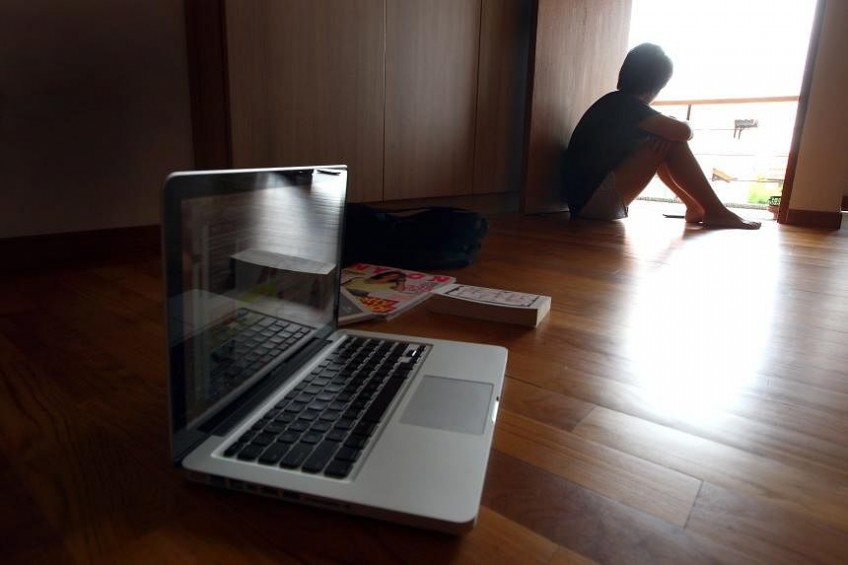Singapore gets new law to remove harmful online content, including suspected scams


SINGAPORE - A Bill that empowers the Government to remove criminal online content was passed in Parliament on Wednesday.
The Online Criminal Harms Act will allow the Government to tell individuals, entities, online and Internet service providers, and app stores to remove or block access to content it suspects is being used to commit crimes.
Minister for Communications and Information Josephine Teo said during the second reading of the Bill that there is growing international consensus that new rules are needed to combat criminal harms online.
Mrs Teo, who is also Second Minister for Home Affairs, said the Bill makes special provisions for scams and malicious cyber activities.
She said: “There is also growing recognition that proactive approaches are needed to prevent such harms, and that government efforts alone will not be enough. The UK (United Kingdom), EU (European Union), Germany and Australia have or are introducing new laws in this regard. They have been useful references as we formulated our proposals.”
Under the new law, five types of directions can be issued when there is reason to believe an offence has been committed online.
The Ministry of Home Affairs (MHA) said previously that these include a stop communication direction that requires the individual or entity that first posted the criminal content online to remove the post, so it is not accessible here.
There will also be a disabling direction that requires the online service provider to disable access to specified content, such as a post or a page, on its site to prevent people here from viewing it.
Examples of online service providers include Facebook, TikTok, WhatsApp and WeChat.
[embed]https://www.youtube.com/watch?v=fOXJsdP6Oog[/embed]
Referring to scams and malicious cyber activities, Mrs Teo said: “Such activities tend to unfold with great speed and scale. They inflict great harms on the victims, not just in terms of financial losses. The threshold to issue directions should therefore be lower than for the other specified criminal offences.”
She said once there is suspicion that any online activity is being carried out in preparation for or as part of the commission of a scam or malicious cyber activity offence, law enforcement could issue directions even before an offence is committed.
Nine MPs asked about the Bill.
Workers’ Party MP Gerald Giam (Aljunied GRC) asked about the reasons for its introduction, given existing legislation.
Mrs Teo said that unlike the Broadcasting Act, which was amended in 2022 and currently covers only social media services, the new Bill covers all mediums of online communication through which criminal activities can be conducted.
It also covers a broader scope of online criminal harms, including illegal moneylending, unlawful gambling and drug-related offences.
She noted that the levers to deal with scams and malicious cyber activities are quite different, and the two pieces of legislation will complement each other.
She said the Broadcasting Act’s code of practice for online safety requires social media services to respond to user reports on scams.
[[nid:604930]]
A user submits a report, and the social media service has a responsibility to act on it.
Given the need to ensure that scams can be efficiently and effectively addressed, Mrs Teo said the Online Criminal Harms Act, when it takes effect, will take it one step further.
She said it would provide the Government with the targeted levers to issue directions against scams and malicious cyber activities, including against online activity that is suspected to be in preparation for such offences.
Leader of the Opposition and WP chief Pritam Singh said his party supported the Bill as it was necessary to protect Singaporeans from scams and other online crimes.
However, he distinguished it from the Protection from Online Falsehoods and Manipulation Act and Foreign Interference (Countermeasures) Act, which the WP did not support.
MHA had previously said all three were measures to better protect the public in Singapore from various online harms.
Mr Louis Ng (Nee Soon GRC) and Mr Yip Hon Weng (Yio Chu Kang) asked how the Bill would be applicable to websites and online services based overseas.
Mrs Teo said it has provisions that allow the issuing of directions, notices, directives and orders to entities and individuals, even if they have no presence in Singapore.
However, she acknowledged that some of these individuals may choose not to comply, and said further steps could be taken.
This could be done through prosecution, or issuing orders to restrict access to the non-compliant online service to prevent the criminal activity from being accessed here.
“For example, an access blocking order can be issued to Internet access service providers to prevent non-compliant online services from continuing to reach users in Singapore and do them harm,” said Mrs Teo.
She said the Bill complements existing efforts to act more effectively against online criminal activities, through partnership between Singaporeans, the Government and industry, and that it was an important step towards creating a safer online space for Singaporeans.
She added: “There is no silver bullet to resolving the complexities of the online world.
“This Bill is calibrated to allow us to respond more effectively to online criminal harms, while enabling us to continue to enjoy the many benefits which the Internet has brought us.”
This article was first published in The Straits Times. Permission required for reproduction.